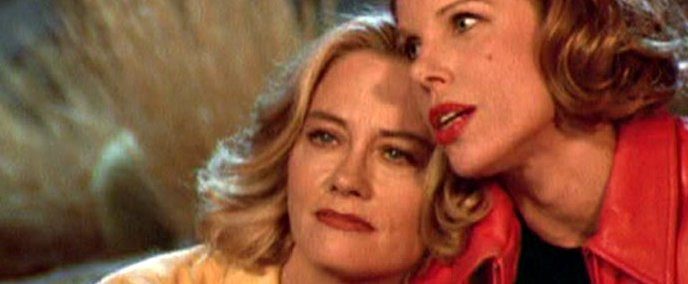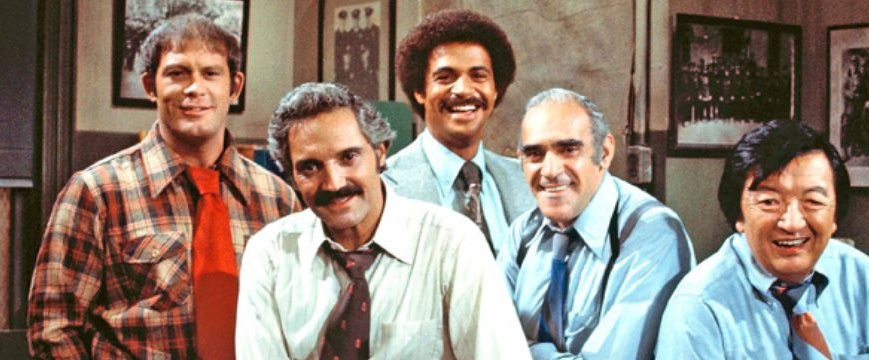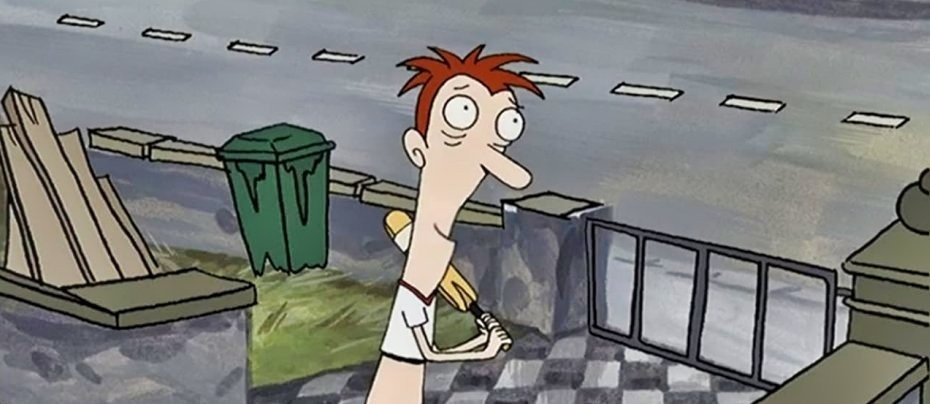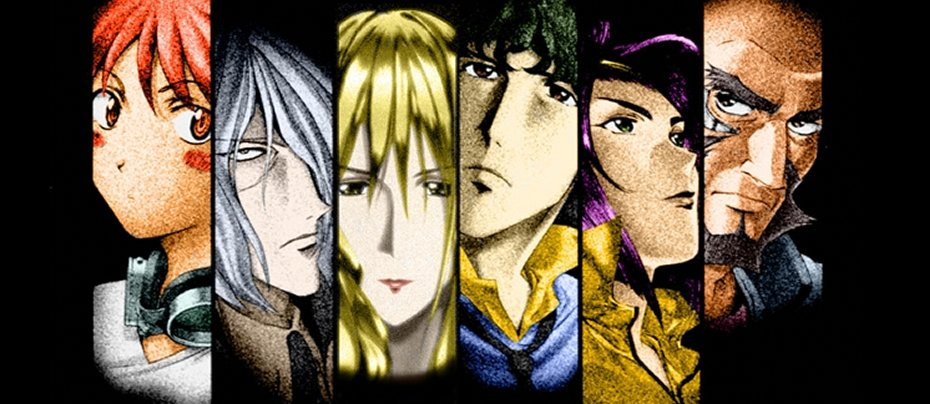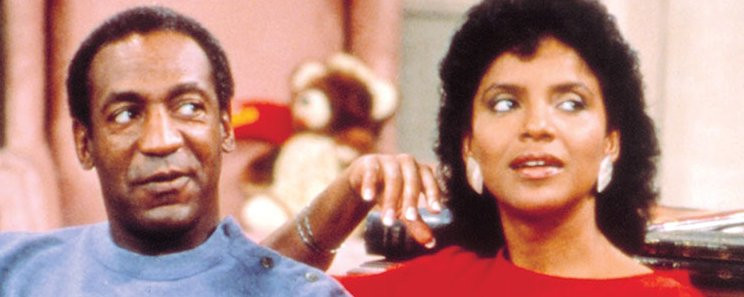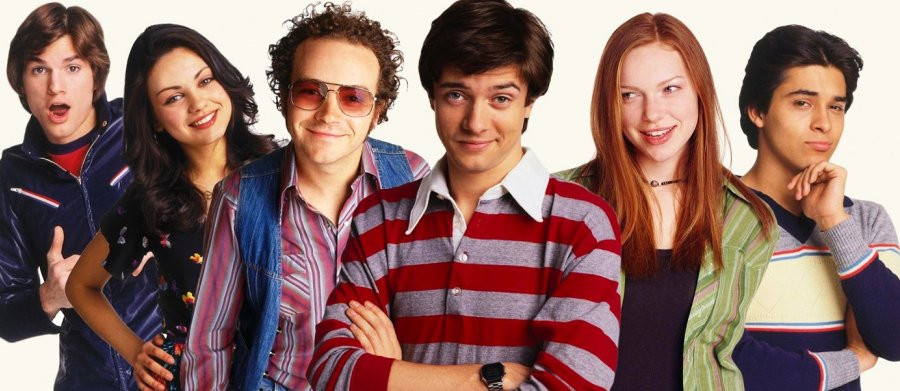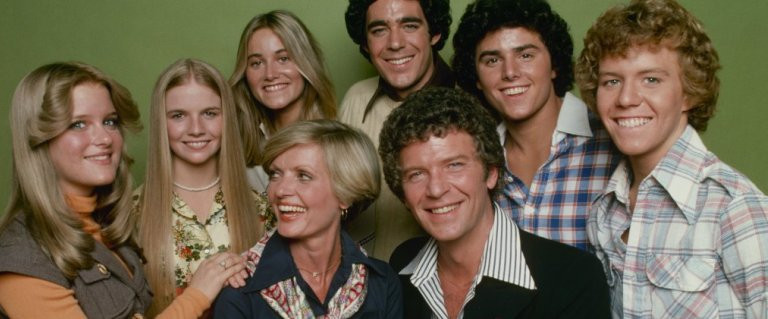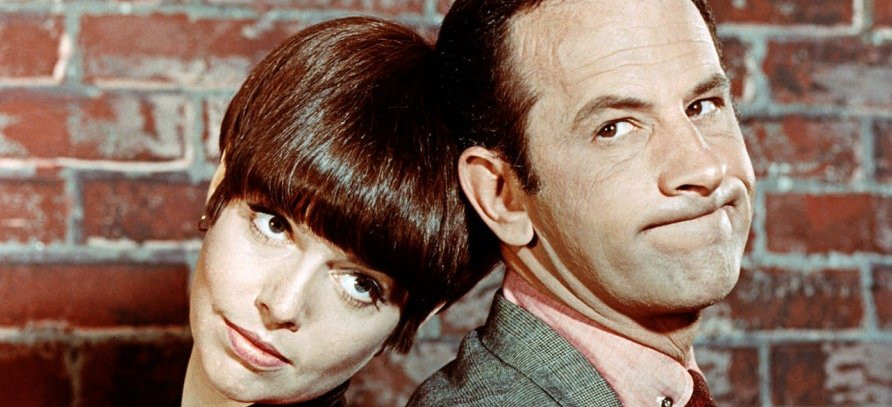
Will and Grace
1998 - United StatesIn its own way, Will & Grace was a groundbreaking situation comedy. With its winning combination of wit, style and knowing repartee, it helped break American television's "pink ceiling" that kept homosexual characters from being accepted in prime time. And it did it the old fashioned way–with laughs. By focusing on the people rather than the issues--and making the show genuinely funny in the process--the series managed to deftly sidestep the controversy that surrounded Ellen DeGeneres’ “coming out” party (with Ellen) in 1997. Some gay rights advocates never warmed to the show; claiming it was simply a modern sitcom with the same old “nelly” stereotypes. But more often than not, those stereotypes were turned onto their heads, and became the weapon that helped viewers accept this unique comedy that provided liberal laughs in a relatively conservative environment.
Producers and real-life friends Max Mutchnick and David Kohan created Will & Grace based on their own lives. The pair met while students at Beverly Hills High School, and went on to work in such series as Dream On and Boston Common. Mutchnick, who is openly gay, based the Will & Grace characters on his real-life relationship with a woman named Janet, whom he called his “best friend.” Originally, the character of "Will" was part of a sitcom Mutchnick and Kohan first pitched to NBC executives in 1997. The original concept was an ensemble comedy featuring three couples, one of which was a gay man living with a straight woman. NBC honchos liked the angle, and sent the pair to create a pilot script centring on those characters. Will & Grace was given a green light by NBC's own production company, and made its debut on September 21st, 1998.
Right from the start, Mutchnick and Kohan had no intention of following in Ellen’s ill-fated footsteps. Said Kohan: "If you're writing a show about people...you want to learn about characters; you don't want to write about issues." The pilot simply got the issue out of the way by making clear that successful and handsome attorney Will Truman was gay and had been in a seven-year relationship with a man named Michael. His best friend, beautiful but kooky Grace Adler, was having her own romantic problems. In the pilot episode, Grace had left her boyfriend Danny at the altar. Will invited Grace to move into his nicely furnished New York City co-op apartment. But there was a problem: Will had promised the spare bedroom to his flamboyantly gay best friend, Jack McFarland. In the end, Grace moved in. Grace, who had her own interior design firm, also was saddled with her "assistant"-- rich, lazy, substance-using socialite Karen Walker, a married woman with children. In a later episode, viewers learned how Will and Grace met: The pair had dated in college, but Will was heavily in the closet. He eventually proposed to Grace, but soon after told her he was gay. The two had a bad falling out, but a year later crossed paths once again, patched things up and became very good friends.
At a time when single (and heterosexual) people dominated American sitcoms, Will & Grace sidestepped the complications of having the lead male and female characters become romantically involved, which has been the ultimate Achilles heel of many a series. It was clear from the start Will and Grace would never sleep with each other (except those times when they would gorge on ice cream and fall asleep on the couch watching “chick flicks”).
Casting played another important role in its success. Canadian-born Eric McCormick was a guest star on many TV series and mini-series, including a regular role on the Western series Lonesome Dove: The Outlaw Years before landing the role of Will Truman. Before she was Grace, actress Debra Messing appeared on such diverse series as NYPD Blue and Seinfeld; she was also on the short-lived but well regarded ABC sci-fi series Prey and a co-star on the Fox sitcom Ned and Stacey (opposite Thomas Haden Church). Sean Hayes had performed on the stage, in commercials and played the title role in the gay-themed film Billy’s Hollywood Screen Kiss (billed as Sean P. Hayes) before landing his breakthrough role of Jack. And Megan Mullally was a TV guest star and musical actress before she was tapped to play Karen. Also seen on a regular basis during the show’s run was Shelley Morrison, who played Rosario, Karen's no-nonsense maid who wouldn’t take any guff from the vodka-swilled diva. (Morrison had formerly played Sister Sixto on the 1960's sitcom The Flying Nun.) During the show's second season, Jack married Rosario so she would not be deported. But when Rosario slept with Karen’s gardener, the “marriage” ended. (Of course, Jack was “dating” other guys as well.)
Although the show was called Will & Grace, it could have been titled “Jack and Karen;” the electricity between Hayes and Mullally helped many episodes crackle with laughter. Their outrageous behaviour (rich Karen “kept” Jack financially afloat while he flitted from man to man and from career to career, always depending on the kindness of friends and strangers). Their wickedly barbed and perfectly delivered one-liners soon made them firm viewer favorites. But the two would have worn out their welcomes quickly had the production team not worked diligently to maintain the delicate, all important, balance between the decidedly larger-than-life pair and the (somewhat) more stable Will and Grace. Right from the start, the show mirrored the humour of American culture (gay and straight) with sharp and witty quips of which the following example is typical: Will: "Grace, you should know better. In this house, a queen beats a straight every time!"
Everyone was surprised over the relative lack of controversy the show created. Unlike Ellen, there were few headlines and little thunder from the religious right. As McCormick noted: "We're under the conservative radar just enough that we don't bug them. Ellen (DeGeneres) was an easier target because she was one person and was very vocal." Co-star Mullally perceptively pointed out that the snide remarks between Will and Jack amounted to "built-in" gay bashing, which may have helped quiet anti-homosexual groups. But TV critics generally loved the series and viewers eventually warmed up to the premise. It was placed on NBC’s low-rated Monday lineup during its first season but started to build an audience almost immediately. It improved its ratings in the second season and by the third year, NBC shifted Will & Grace to its “Must See Thursday” comedy lineup, where it landed among the top 20 programmes for four straight seasons. And in 2000, the show was named Best Comedy Series. Each of the four lead actors picked up Emmys in their respective categories, joining All In The Family and The Golden Girls as the only American comedy series where each of the leads won an Emmy for acting honours.
Will & Grace’s success encouraged a number of big-name stars to appear on the show. Cher, Sandra Bernard, Kevin Bacon, Elton John, Candice Bergen and others appeared as themselves. But a number of notables played different characters–Michael Douglas as a police detective with the hots for Will; Ellen DeGeneres as a nun; Madonna as a roommate of Karen’s. But eventually, the producers began overdoing the guest role, booking stars on name power and not on ability to play different roles. The show worked more effectively when the notables appeared as themselves–and mocked their own lives, as Kevin Bacon did in one memorable episode when he and Will recreated a dancing scene from Bacon’s 1984 musical film hit Footloose. But the show’s fortunes took a downturn when Friends (NBC’s strongest sitcom) left the airwaves in 2004. Will & Grace fell from the 16th most popular show in the 2003-04 season, to 44th place in the 04-05 season. In its final year, Will & Grace plunged even further, to 61st overall.
The last few seasons did bring major changes: Grace fell in love and married Doctor Marvin “Leo” Marcus (Harry Connick Junior); the pair divorced after Grace learned Leo had an affair with a fellow physician while overseas for the organization “Doctor Without Borders.” The two reconciled after Grace became pregnant with Leo’s baby. Meanwhile, the never-seen and morbidly obese Stan died, leaving Karen a widow; she eventually married a British man named Lyle Finster (John Cleese) whose slutty daughter Lorraine Finster (Minnie Driver) kept trying to break up their relationship. (Lorraine was revealed to have been Stan’s mistress before his death.) As for Jack, he ended up in a relationship with Beverly Leslie (Leslie Jordan), an older, closeted but wealthy man who was also an enemy of Karen’s for much of the show’s run. Beverly died in a bizarre accident, leaving Jack wealthy–and he moved in with Karen, who discovered Stan faked his death and divorced him for good.
For Will, whom fans wanted to see finally paired off, love finally bloomed. In the spring of 2004, he met and fell in love with New York Police officer Vince D’Angelo (Bobby Cannavale); the two dated but split up a year later. In the fall of 2005, Will and Vince reunited, moved in together and became parents by adopting a baby. But the relationship nearly ended when Will said he would support Grace after she divorced Leo and said she would raise her baby on her own. But once Leo professed his love for Grace, she agreed to marry him again, allowing Will to pursue his relationship with Vince.
In the final episode (which aired May 18th, 2006), Will and Grace remained friends but were somewhat distant. The episode flash forwarded 20 years later, when Will’s son Ben became engaged to Grace’s daughter Lila. The two rekindled their friendship, which survived over the years, through thick and thin, children and relationships. Karen, Jack and Rosario also lived together...to the delight of more than 16 million viewers, who helped land the series finale in the top ten.
The most important thing Will & Grace demonstrated was that gay people could not only be the butt of jokes, they could fire back with aplomb as well. (That sensibility also seeped into other series with gay characters–in particular U.S. reality shows such as Survivor and Queer Eye For The Straight Guy.) “Will” criticized the worst aspects of both straight and gay society, and did so with humour. Good writing and finely honed comedic acting helped to depict these characters of differing sexual persuasions on an entirely equal footing–to the benefit of the audience. Whatever way you choose to look at it, Will & Grace was a very funny sitcom that came out of the network closet
Seen this show? How do you rate it?
Seen this show? How do you rate it?
Published on February 12th, 2019. Written by Mike Spadoni (2008) for Television Heaven.


